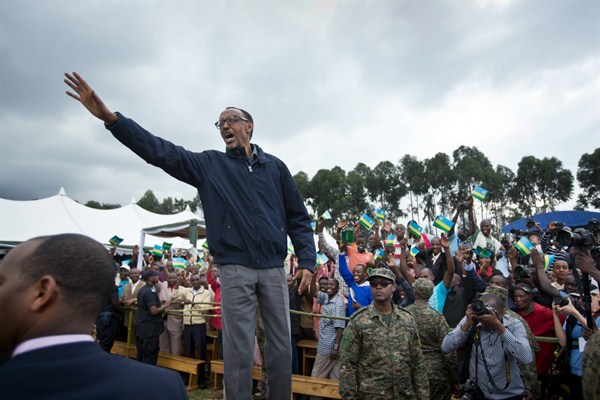On Monday, a court in Rwanda’s capital, Kigali, ordered the release of a Rwandan-British woman accused of forming an armed group and plotting against the state. Violette Umawahoro, whose husband is an activist in the opposition Rwandan National Congress, was held incommunicado for more than two weeks after her arrest in mid-February. Her friends and family maintain she has no personal involvement in politics, and the court, in letting her out on bail, said prosecutors had presented no evidence to back up their claims.
Umawahoro’s release could be viewed as a positive example of the judiciary placing an important check on politically motivated arrests. But it came on the heels of a grim anniversary for those worried about the generalized climate of repression in the East African nation. The previous day marked one year since Illuminee Iragena, a former legislative candidate and member of an unregistered opposition party, disappeared while on her way to work at a hospital in Kigali. “Sources close to the case believe that Illuminee was tortured and died in custody, but have no official information on her fate,” Amnesty International’s Sarah Jackson said in a statement that called on authorities to reveal what happened to her.
The use of strong-arm tactics to silence dissent is nothing new in Rwanda, where President Paul Kagame has been in charge since his Rwandan Patriotic Front fighters stormed Kigali and ended the 1994 genocide. He has served as president since 2000, and in 2015 he successfully engineered constitutional revisions that could permit him to stay in power until 2034.

